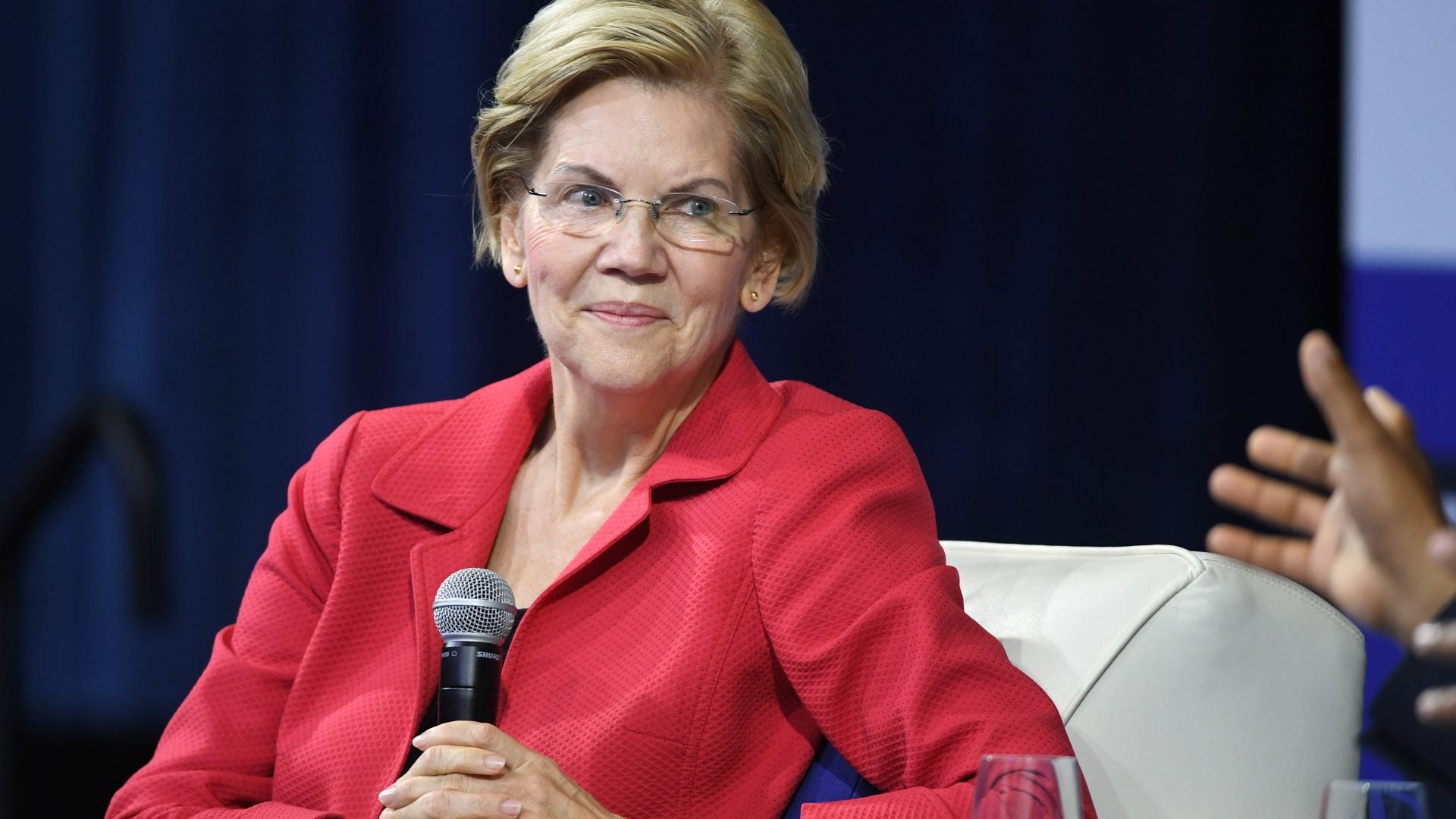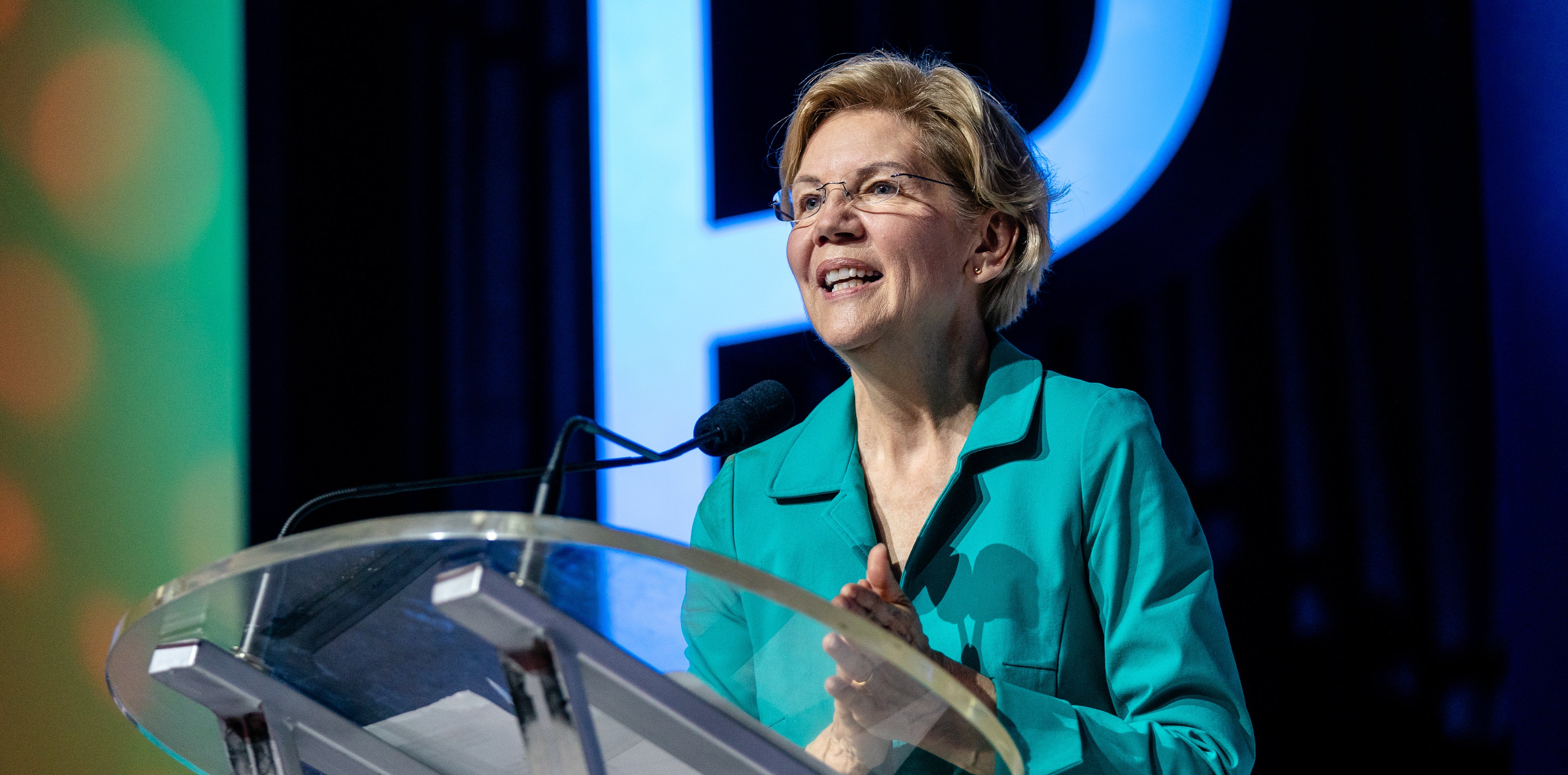
Presidential candidate Elizabeth Warren is taking on climate justice in her newest campaign proposal. On Wednesday, the 2020 hopeful released a plan to combat climate change by centering the experiences of people of color.
The rollout comes on the heels of a visit last month to Rashida Tlaib’s Detroit district, considered the most polluted zip code in Michigan and dubbed “Toxic Town.” In the intro to Warren’s plan she acknowledges that “industrial pollution has been concentrated in low-income communities for decades—communities that the federal government has tacitly written off as so-called “sacrifice zones.”
Warren also adds, “But it’s not just about poverty, it’s also about race. A seminal study found that Black families are more likely to live in neighborhoods with higher concentrations of air pollution than white families—even when they have the same or more income. A more recent study found that while whites largely cause air pollution, Blacks and Latinxs are more likely to breathe it in.”
The realization has prompted the Massachusetts Senator to devise a way to improve environmental equity mapping and identify, on a federal level, at-risk communities. As a part of The Green New Deal, she pledges to extend trillions of dollars to remodel the way we source and consume energy. Federal agencies will also be forced to assess their impact on the climate when making rules and issuing permissions. And work with communities of color to do so.

Warren recognizes the fact that environmental justice goes hand in hand with building wealth in Black and Brown communities, given that people of color more often live in neighborhoods that are the most negatively affected by climate change. “That’s not a coincidence,” the Democratic frontrunner insists. “Decades of racist housing policy and officially sanctioned segregation that denied people of color the opportunity to build wealth also denied them the opportunity to choose the best neighborhood for their families.”
In addition to creating wealth in vulnerable communities, she plans to expand healthcare coverage and invest in strategies that will help close the equity gap between White Americans and minorities by investing $400 billion into clean energy research and development.





